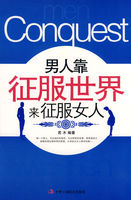expressed wish anent shaving, who gloried in Muscovite barbarism, and had solemnly "sworn a feud" against European civilisation and enlightenment. By the tourists of the time who visited Moscow they were regarded as among the most noteworthy lions of the place, and were commonly depicted in not very flattering colours. At the beginning of the Crimean War they were among the extreme Chauvinists who urged the necessity of planting the Greek cross on the desecrated dome of St. Sophia in Constantinople, and hoped to see the Emperor proclaimed "Panslavonic Tsar"; and after the termination of the war they were frequently accused of inventing Turkish atrocities, stirring up discontent among the Slavonic subjects of the Sultan, and secretly plotting for the overthrow of the Ottoman Empire. All this was known to me before I went to Russia, and I had consequently invested the Slavophils with a halo of romance. Shortly after my arrival in St. Petersburg I heard something more which tended to increase my interest in them--they had caused, I was told, great trepidation among the highest official circles by petitioning the Emperor to resuscitate a certain ancient institution, called Zemskiye Sobory, which might be made to serve the purposes of a parliament! This threw a new light upon them--under the disguise of archaeological conservatives they were evidently aiming at important liberal reforms.
As a foreigner and a heretic, I expected a very cold and distant reception from these uncompromising champions of Russian nationality and the Orthodox faith; but in this I was agreeably disappointed. By all of them I was received in the most amiable and friendly way, and I soon discovered that my preconceived ideas of them were very far from the truth. Instead of wild fanatics I
found quiet, extremely intelligent, highly educated gentlemen, speaking foreign languages with ease and elegance, and deeply imbued with that Western culture which they were commonly supposed to despise. And this first impression was amply confirmed by subsequent experience during several years of friendly intercourse.
They always showed themselves men of earnest character and strong convictions, but they never said or did anything that could justify the appellation of fanatics. Like all philosophical theorists, they often allowed their logic to blind them to facts, but their reasonings were very plausible--so plausible, indeed, that, had I
been a Russian they would have almost persuaded me to be a Slavophil, at least during the time they were talking to me.
To understand their doctrine we must know something of its origin and development.
The origin of the Slavophil sentiment, which must not be confounded with the Slavophil doctrine, is to be sought in the latter half of the seventeenth century, when the Tsars of Muscovy were introducing innovations in Church and State. These innovations were profoundly displeasing to the people. A large portion of the lower classes, as I have related in a previous chapter, sought refuge in Old Ritualism or sectarianism, and imagined that Tsar Peter, who called himself by the heretical title of "Imperator," was an emanation of the Evil Principle. The nobles did not go quite so far. They remained members of the official Church, and restricted themselves to hinting that Peter was the son, not of Satan, but of a German surgeon--a lineage which, according to the conceptions of the time, was a little less objectionable; but most of them were very hostile to the changes, and complained bitterly of the new burdens which these changes entailed. Under Peter's immediate successors, when not only the principles of administration but also many of the administrators were German, this hostility greatly increased.
So long as the innovations appeared only in the official activity of the Government, the patriotic, conservative spirit was obliged to keep silence; but when the foreign influence spread to the social life of the Court aristocracy, the opposition began to find a literary expression. In the time of Catherine II., when Gallomania was at its height in Court circles, comedies and satirical journals ridiculed those who, "blinded by some externally brilliant gifts of foreigners, not only prefer foreign countries to their native land, but even despise their fellow-countrymen, and think that a Russian ought to borrow all--even personal character.
As if nature arranging all things with such wisdom, and bestowing on all regions the gifts and customs which are appropriate to the climate, had been so unjust as to refuse to the Russians a character of their own! As if she condemned them to wander over all regions, and to adopt by bits the various customs of various nations, in order to compose out of the mixture a new character appropriate to no nation whatever!" Numerous passages of this kind might be quoted, attacking the "monkeyism" and "parrotism" of those who indiscriminately adopted foreign manners and customs--those who "Sauntered Europe round, And gathered ev'ry vice in ev'ry ground."















